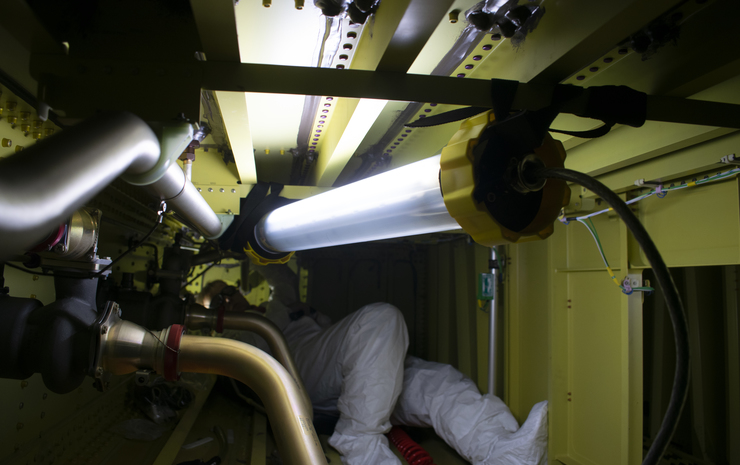
Confined space lighting in hazardous areas using LED portable light from wolf safety

David Lyon, Sales Manager with Wolf Safety Lamp, was approached by one of Europe’s largest passenger airlines requiring ATEX lighting in a confined space as they needed to safely illuminate the interior of a jet airliner’s fuel tank.
David accepted the challenge and spoke with the relevant department about their exact requirements given the nature of the application to reach the most reliable and safe lighting solution certified to the correct hazardous area classification.
Specifically he was asked to provide a safe ATEX certified hands free lighting solution for maintenance staff carrying out vital inspection, maintenance and repair operations inside the potentially explosive atmosphere of the aircrafts’ fuel tanks.
This meant that routine operations were taking too long to complete and pressure was mounting to reduce aircraft turnaround time.
A certified portable hazardous area tank lighting solution was needed which would supply much higher quality, brighter lighting within the fuel tanks and would leave operators’ hands free to concentrate on the inspection and repair work.
The light source must have the correct ATEX certification to counter the potential risk of explosion and take into account the physical challenges of the aircraft’s structure, including the narrow entrances and confined nature of the tanks themselves.
THE CONFINED SPACE LIGHTING CHALLENGE
The airline’s current practice involved technical staff using handheld torches as they crawled and worked inside the pitch-black tanks. This had two major disadvantages:
The torches simply weren’t bright enough to illuminate the confined space tank
Operators need both hands to manoeuvre through the confined space of the tanks and carry out maintenance and repair tasks
Click the link below to read more.
External URL: https://www.heatingandprocess.com/confined-space-lighting-hazardous-areas/
By Thorne & Derrick International
651 Views
Recent Posts
- Heliex Power Saves Formaldehyde Producers £500k
- NEPIC spoke with member, Alpek Polyester UK Ltd to learn how they develop their workforce for the future and discover more about their mission to educate on PET
- FEG Global Designs Self-Powering Facility In Ghana
- Thorne & Derrick Electrifying Industry With 3M
- UK MP and chemical engineer Chris McDonald keen to unite the worlds of engineering and politics
Back to News >



